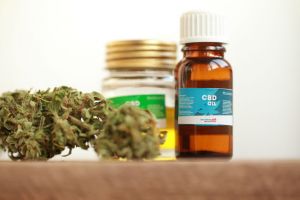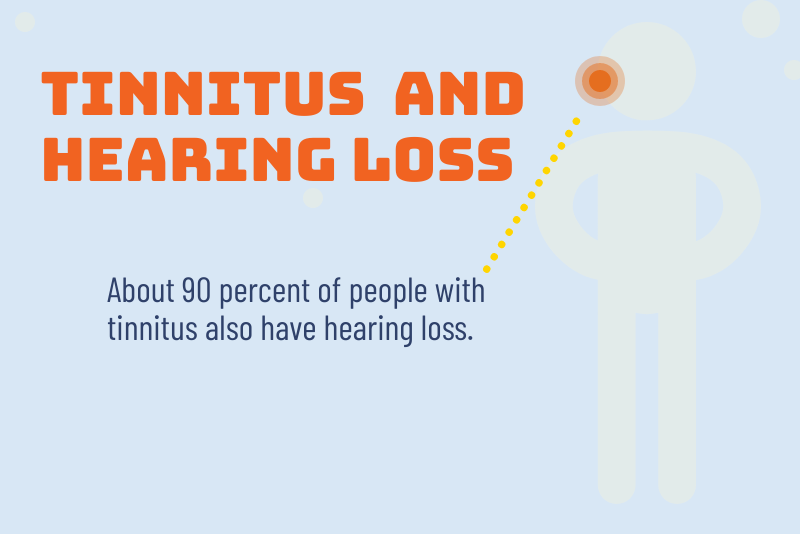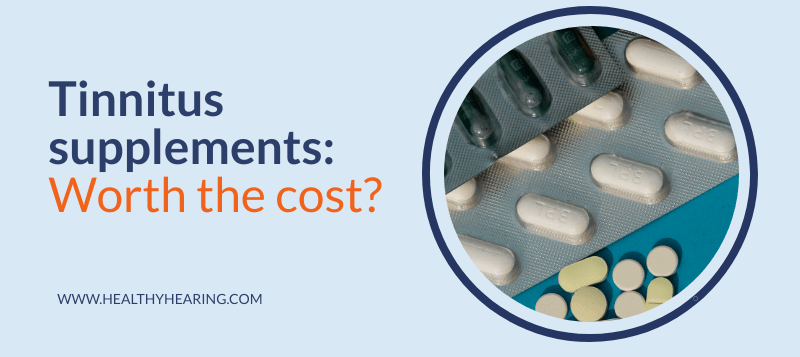|
www.HealthyHearing.com |
Tinnitus supplements: Helpful or harmful?Why a heavy dose of skepticism is necessary
Contributed by Glenn Schweitzer Key points:

If you or a loved one has suffered from tinnitus, you have probably seen advertisements for various tinnitus products, like over-the-counter supplements and ear drops, being marketed as a sure-fire way to find relief. These products may look tempting, but they’re not what they seem. Unfortunately, there are currently no cures for tinnitus. (However, there are some supplements that may help with sleep, a common issue for people with tinnitus. You can read my sleep tips for tinnitus, including supplements that have helped me.) Valid treatments do exist, and lasting relief is possible through a process known as habituation – so there are good reasons to have hope. But as of now, that hope is not in the form of some “miracle pill” being sold by an opportunistic online marketer. Yet dozens of these products still exist. The question is why? A vulnerable target market: Anyone with tinnitusThe early journey of a new tinnitus sufferer is not an easy one. When an unpleasant sound appears out of nowhere, and you suddenly realize it’s inside your head and nowhere else, anxiety is almost always the immediate result.
You go to the doctor for help, but there’s a pretty good chance you’re going to hear some variation of, “I’m sorry there’s nothing you can do about this. You’re just going to have to live with it.” For some strange reason, many doctors have not received much of an education about tinnitus and the various treatment options available. And so your anxiety turns to panic. The problem just became very real, and now you think it might permanent. The next stop on your journey is Google. You feel that there has to be something you can do… right? But Googling tinnitus can quickly confirm your deepest fears, as you are confronted with reports of unimaginable suffering. The panic is at full force now, and that very panic makes the tinnitus worse. Hoping for a tinnitus cureIt’s at this moment, when you are most vulnerable, that you start to notice the advertisements for over-the-counter tinnitus supplements. They are often promoted as pseudo-tinnitus cures, marketed with big claims and aggressive sales tactics. If you suffer from tinnitus, you have likely tried at least one of these products. I certainly did when I was first diagnosed. But the unfortunate truth is that these supplements are not proven to work and are filled with ingredients that often have little to no tinnitus-related research behind them. Even if a company can demonstrate some sort of benefit for their tinnitus relief product, they haven’t demonstrated benefit against placebo. None of them ever have because they are not legally required to do so.
At this point in the journey, your hope for relief is crushed again, for the third time in a row. There are many treatment options and strategies to find lasting relief from tinnitus, but there is still currently no magic bullet or miracle cure. And any company that says otherwise is simply not being honest. Labeling loopholes and deceptive marketingOne of the biggest challenges with these over-the-counter tinnitus relief products is the current state of FDA regulation and labeling laws. In an interview with the American Tinnitus Association (transcript here), Dr. Bob DiSogra, an audiologist and expert on pharmacology, ototoxicity (medications that can cause hearing loss and tinnitus), and nutraceuticals, explains, “ The real story is…that the Food and Drug Administration has not approved any of these products for tinnitus relief…There [are] loopholes in the law here that allow these manufacturers to make these claims for tinnitus relief without really [having] any [evidence]. The don't have to prove it.” He goes on to explain that the FDA classifies these nutraceutical products as dietary supplements which are regulated as food products. And dietary supplements are not required to go through the same rigorous process as prescription medications, where efficacy against placebo must be proven through double-blind studies. “Because it's [regulated as] food, there [are] loopholes," he said. "And you can say whatever you want about the product and you don't have to prove efficacy and safety. Whether it's effective or not. But as long as you put the disclaimer on the label that says… ‘These statements have not been evaluated by the FDA. This product is not intended to diagnose, treat, cure, prevent any disease.’… the manufacturers can make these statements… they are basically working within the laws.” So these companies can make very bold claims about their products without any sort of proof that the product is safe or effective, and they often hide their disclaimer in very small print at the bottom of an ad or in rapid speech at the end of a TV or radio commercial. One final buyer beware: If you see a product or company using terms like “FDA registered” or “FDA approved” in their marketing, it just means the company has registered itself with the FDA and the product is approved for sale. The product itself is not FDA approved for treating tinnitus, and that is an important (and often overlooked) distinction. Problematic ingredientsIf they can look past the deceptive marketing language, many tinnitus sufferers think, “But what about the ingredients themselves? Isn’t there research for the individual ingredients? Their just vitamins, it couldn’t hurt to try it, right?” This is where things get a little more complicated. According to Dr. DiSogra, there are more than 250 different dietary ingredients being used in these tinnitus relief supplements, in various concentrations and combinations. 
what the research says about CBD oil for tinnitus. We've also investigated essential oils tinnitus and hearing loss. “There are over 80 products on the market right now coming from all different parts of the world... Some having anywhere from 3 or 4 ingredients to over 35 ingredients….And my researcher has looked at each of the individual ingredients that are in these products and only about 10% of them have any published research on them. And even then, the research is really vague,” he said. Many of the ingredients found in these products are benign (or relatively benign) in small quantities, but that’s not always the case. For example, quinine—a powerful anti-malarial drug with many dangerous side effects—has been found in some of these over-the-counter tinnitus relief products. "Some have ingredients that can be found in rat poison…and ceramic glazing," he said. "When I was doing this research several years ago, I was flabbergasted…I don't believe this is in there.” Dosage is everythingUnsafe ingredients are not the only potential risk here to consider. Dosage is another potential problem. Just because an included ingredient is safe (or relatively safe) at a certain dosage, doesn’t mean it’s equally safe in large quantities. And often companies will hide the specific amount of each ingredient by labeling their formulation as a proprietary blend. The ingredients themselves are not proprietary in any way, but dietary supplement companies can claim that the specific ratio of included ingredients—their formula—is proprietary. They can legally hide the specific dosage of each ingredient in their proprietary blend, and they are only legally required to show the combined dosage of all ingredients included on the list. This is made worse by the fact that companies can also choose to include mega-doses of various ingredients in these products. Dr. DiSogra explains, “Most of the products that I've seen are just multivitamins. And they're just megavitamins. There was one product that I saw that had over 16,000% of the minimal daily requirement that's set by U.S. Pharmacopeia.” Risk of drug interactionsThere is also always a risk of adverse drug interactions when a tinnitus patient is taking other prescription medications or supplements. Many tinnitus patients do not discuss these supplements with their doctor and that can lead to problems, depending on other health conditions they may have, and the medications they take for said conditions. At the very least, it’s safe to say there are far more risks to consider than most people realize. Hidden costs: These products don't come cheapAt this point, knowing the risks, a tinnitus sufferer may still say, “Nothing else is working, what do I have to lose?” 
hearing tested. Tinnitus and hearing loss are linked. Some of these products are not inherently dangerous if your doctor is monitoring you and they give their approval. But one troubling fact still remains–these products are expensive. When a company wants to create a dietary supplement product like many of the over-the-counter tinnitus nutraceuticals, it follows a pretty simple formula: Source various inexpensive and common dietary ingredients, combine them into a proprietary blend, mark up the price, and then sell and market the finished product to tinnitus sufferers. The truth is that in almost every case, all of the common ingredients found in these products can be purchased for far less money when not combined into a tinnitus product. Expense alone is not necessarily a reason to avoid a product but when you also consider there is no actual evidence for the efficacy or safety of any of these products, it becomes relevant. A quick search for tinnitus supplements on Amazon reveals that many of these products cost anywhere from $20 to $50 for a one-month supply. And many of these companies tell you that it can take up to three months to see results, which means you aren’t buying one bottle, but three. Speaking both as a tinnitus patient myself who has suffered greatly at times, and also as a tinnitus coach who has worked directly with hundreds of tinnitus sufferers all over the world, I know firsthand how devastating tinnitus can be to your quality of life. I see it every day. And I know how tempting these products can be when you are desperate for relief. But I also know how dishonest many of these companies are in their marketing, and how many people hold out hope only to be let down again when the products didn’t work as advertised. The good news is that the search for new tinnitus treatments and therapeutics continues, with exciting research happening all over the world. But we also don’t need to wait for the next big breakthrough, because valid treatments already exist–just not in a bottle of supplements or ear drops. Find tinnitus treatmentIf you have ringing in the ears, it's important to get a thorough evaluation. Find a tinnitus doctor near you by going to our directory of hearing care providers. Please note that not all hearing clinics treat tinnitus, so you may need to browse several clinic pages to find the right provider. Related content: Glenn Schweitzer
Related Help Pages:
Tinnitus (ringing in the ears) Treatment
|
Featured clinics near me
Earzlink Hearing Care - Reynoldsburg
7668 Slate Ridge Blvd
Reynoldsburg, OH 43068

Find a clinic
Need a hearing test but not sure which clinic to choose?
Call 1-877-872-7165 for help setting up a hearing test appointment.



 Glenn Schweitzer is an entrepreneur, blogger, and the author of Rewiring Tinnitus and Mind over Meniere’s. He is passionate about helping others who suffer from tinnitus and vestibular disorders and volunteers as an Ambassador Board Member for the Vestibular Disorders Association (VEDA). Through his blogs, he continues to raise awareness for tinnitus, Meniere’s disease, and other vestibular disorders, spreading his message of hope to those in need.
Glenn Schweitzer is an entrepreneur, blogger, and the author of Rewiring Tinnitus and Mind over Meniere’s. He is passionate about helping others who suffer from tinnitus and vestibular disorders and volunteers as an Ambassador Board Member for the Vestibular Disorders Association (VEDA). Through his blogs, he continues to raise awareness for tinnitus, Meniere’s disease, and other vestibular disorders, spreading his message of hope to those in need.